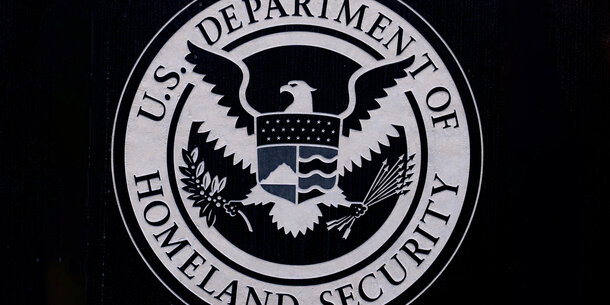In its first 100 days, the second Trump administration’s actions have upended seemingly every aspect of American life and government. More than 200 federal lawsuits have challenged its moves, and at least 149 have won initial victories. Given the sheer volume of cases, it’s easy to get lost in the details and lose sight of the bigger picture of what’s at stake for our democracy. But zooming out reveals a clear trend: The administration is pushing to create an all-powerful executive that can ignore and usurp Congress’s constitutional authority at will.
There is a reason the Constitution gives Congress, not the president, broad authority to pass laws, spend money, and otherwise shape government — it’s the branch most directly accountable to the American people. The public directly elects its representatives to legislate in a way that meets their communities’ specific needs. As James Madison himself explained, the government’s success would rely on Congress’s “immediate dependence on, and intimate sympathy with, the people.” In contrast, the president’s only duty is to follow, and execute, the law as Congress enacts it.
Three of the administration’s high-profile actions, all facing fast-moving legal challenges in the appellate courts, demonstrate its desire to overhaul this democratic arrangement and empower itself at Congress’s expense: its efforts to remove the heads of independent agencies, impound federal funds, and shut down federal offices.
Removing Independent Agency Heads
The president’s firing spree has targeted one of Congress’s most important constitutional authorities: the power to create, shape, and oversee the many independent agencies that exist to serve the public good. These agencies make critical, and often technical, decisions on matters ranging from financial markets to transportation to toxic substances. Congress gave them independence to ensure that their decisions on these important matters follow the law and make good policy sense, rather than simply parrot presidents’ political or personal preferences. To safeguard this independence, Congress gave heads of independent agencies fixed terms and set specific criteria for when they can be removed early, such as when engaging in “malfeasance.” Indeed, these types of protections date back more than 100 years.
The president, however, has ignored those protections and removed board members of several independent agencies, including the National Labor Relations Board and the Federal Trade Commission, both before their time was up and without any reason Congress would recognize as legitimate. According to the administration, the president should be able to unilaterally fire agency heads whenever and for whatever reason.
Several lawsuits have argued that the firings violate the clear language of the tenure protections set by Congress, and the Supreme Court may weigh in soon. In doing so, it won’t just decide the technical question of whether the president properly removed the agency heads from their offices, but the more profound question of whether the president can override Congress’s long-standing laws governing firings and agency heads’ terms of office, as the administration now claims it can.
Impoundment
The administration’s attempts to freeze federal spending raise similar concerns that the executive branch is aggrandizing itself at Congress’s expense. In an unprecedented move, the Trump-appointed acting director of the Office of Management and Budget ordered a government-wide impoundment of trillions of dollars that Congress had already appropriated to federal agencies. According to the office’s memo, the pause would end only after it reviewed whether agency activities implicate policies the president opposes, specifically citing “DEI, woke gender ideology, and the green new deal.” It created immediate chaos, throwing critical programs and services such as veteran nursing care, childcare assistance, and disaster relief into limbo.
Multiple lawsuits won early victories that temporarily halted the funding freeze. In the words of one court, the budget office’s order “fundamentally undermines the distinct constitutional roles of each branch of our government.” Indeed, it violates one of Congress’s most important authorities: the power of the purse. The Constitution requires members of Congress to decide how taxpayer dollars are spent because lawmakers, not the president, are best situated to know how those decisions will affect their constituents and communities. The resulting congressional appropriations are laws as inviolable as any other. The president, in turn, merely executes those laws — the executive branch has no inherent authority to withdraw spending that Congress has authorized.
But even with those court orders blocking the budget office’s memo, federal grant and loan recipients have struggled to regain access to their funds, and the administration has withheld congressionally authorized funding through other means. The dozens of funding-related cases working their way through the courts suggest that the administration will continue its efforts to bypass Congress and unilaterally decide how taxpayer dollars are spent.
Agency Shutdowns
A similar presidential power grab is at work in the administration’s attempts to shut down certain congressionally created agencies altogether. Consider, for example, the Consumer Financial Protection Bureau. The Constitution gives Congress the power to regulate commerce. In the aftermath of the 2008 financial crisis, Congress used that power to create the bureau and charge it with supervising and regulating financial institutions across the country and helping consumers harmed by those institutions. But soon after taking office, the Trump administration set out to “totally eliminate” it. Trump fired and replaced the director, and his successor quickly proceeded to refuse all future funding for the bureau, direct staff not to perform “any work tasks,” close its headquarters, cancel $100 million in contracts, and fire probationary employees.
The judge who fielded one of the ongoing challenges to the bureau’s shutdown explained the administration’s abuse of power succinctly: It “overstepped [its] statutory and constitutional authority and usurped the power of the members of Congress, who were democratically elected by the people in every state in the union.” In other words, the administration acted unlawfully in attempting to destroy something Congress had authorized, essentially trying to exercise a second veto over a law that was duly enacted — another example of a president taking the law into his own hands, or more accurately, disregarding it altogether.
These cases are just a sample of the hundreds filed against the administration so far. But they underscore what’s at stake for our system of government. By ignoring the checks and balances designed to keep him accountable to Congress, the president is threatening to become exactly what the framers feared: an all-powerful and unconstrained executive who operates more like a king than the head of a constitutional democracy.




